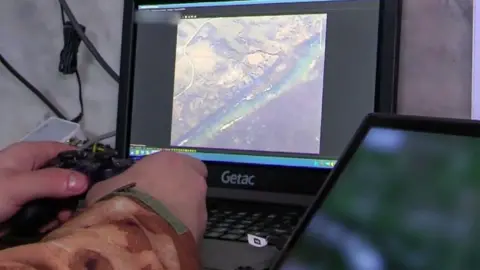The United Kingdom has officially implemented a ban on the export of video game controllers to Russia. This decision is based on the assertion that these technologies can be repurposed to operate drones that are utilized in military assaults against Ukraine. The recent export restrictions form part of a comprehensive package, which includes approximately 150 trade sanctions announced by the UK’s Foreign Office on a Thursday in late April. These measures represent an escalation in the ongoing sanctions regime against Russia stemming from its invasion of Ukraine, which commenced in 2022.
In a related move, the European Union has also introduced a similar prohibition on exporting video games and joysticks to Russia earlier this year. The UK sanctions are designed not only to block gaming devices but also to halt the export of various high-tech items that are critical to defense and energy sectors. For instance, software that facilitates the exploration of new oil and gas wells is among the restricted technologies. This aligns with strategic goals to impede Russia’s military capabilities by reducing access to equipment that can be adapted for offensive operations.
The UK government’s recent sanctions extend to various goods including chemicals, electronics, machinery, and metals, aiming to cripple Russia’s military infrastructure and limit its operational effectiveness. Specifically, these measures target electronic circuits and components that are integral in weapons manufacturing processes. Stephen Doughty, a minister from the Foreign Office, expressed the government’s goal to ensure that gaming consoles, which could potentially be manipulated for warfare, are no longer contributing to the conflict in Ukraine. He highlighted the previous belief that Russian forces could acquire seemingly innocuous goods from British markets to further their war efforts, but emphasized that the UK is committed to curbing this clandestine commerce.
Doughty also pointed to the broader strategic impact of restricting Russia’s energy revenues, which he insists will significantly undermine President Vladimir Putin’s military resources. These firm measures aim not only to limit Russia’s access to advanced military technology but also to disrupt their supply chains, thus impacting their operational capabilities on the battlefield.
As part of this robust sanctions strategy, the UK has denounced a recent Russian missile attack in Kyiv that tragically claimed the lives of nine individuals while injuring numerous others. This assault occurred shortly after diplomatic discussions were held in London among officials from Ukraine, the US, the UK, and Europe, aimed at establishing a ceasefire. UK Foreign Minister David Lammy took to social media platform X to express outrage over the timing of the strike, contrasting it with the peaceful negotiations taking place.
In light of these developments, it becomes evident that the UK, alongside its international allies, is doubling down on its efforts to exert punitive measures against Russia. The overarching aim of these sanctions is to apply pressure through economic means in hopes of influencing Russian military operations and ultimately contributing to a resolution of the ongoing conflict. The actions taken reflect a heightened commitment to stand against aggressive military actions and uphold international law as the situation continues to evolve.
In summary, the UK’s recent sanction package, highlighting the ban on video game controllers, epitomizes a broader strategy to diminish Russia’s capacity for warfare and signal solidarity with Ukraine during these tumultuous times. By restricting access to technology that can be utilized for military purposes, UK officials hope to stifle the operational capabilities of the Russian military and promote a peaceful resolution to the war, underscoring the importance of international cooperation against aggression.



